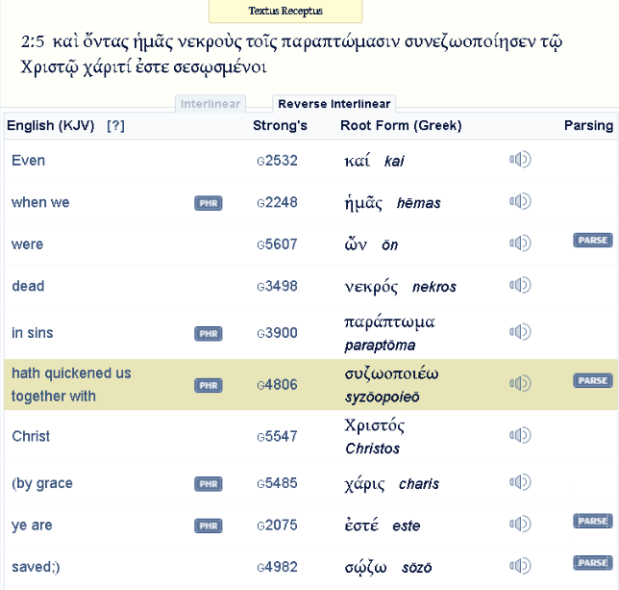
Colossians 2:12-20
(12) Buried with him in baptism, wherein also ye are risen with him through the faith of the operation of God, who hath raised him from the dead.
(13) And you, being dead in your sins and the uncircumcision of your flesh, hath he quickened together with him [Christ], having forgiven you all trespasses
(20) …therefore…ye be dead with Christ from the rudiments of the world…
Ephesians 2:1-6
(1) And you hath he quickened, who were dead in trespasses and sins
(5) Even when we were dead in sins, hath quickened us together with Christ, (by grace ye are saved;)
(6) And hath raised us up together, and made us sit together in heavenly places in Christ Jesus:
Romans 6:3-4
Know ye not, that so many of us as were baptized into Jesus Christ were baptized into his death? Therefore we are buried with him by baptism into death: that like as Christ was raised up from the dead by the glory of the Father, even so we also should walk in newness of life.
Romans 6:5
For if we have been planted together in the likeness of his death, we shall be also in the likeness of his resurrection:
The goal of this essay is to determine what it means to be “dead in trespasses and sins.” I am concerned that the popular spiritual death explanation ascribed to this phrase by many Christian leaders is misleading. From Romans 6:5 emerges a rule which tethers the words death and resurrection to each other in such a way that both words must be taken in the same sense—they are both either literal or figurative. No mixing of a figurative death (e.g. spiritual death) and a literal resurrection is therefore permitted. This point is important because in the passages of Ephesians 2:1-6 and Colossians 2:13-20, both the Romans 6:5 rule and the force of logic compel us to conclude that the Author is using the terms dead and quickened symmetrically.
